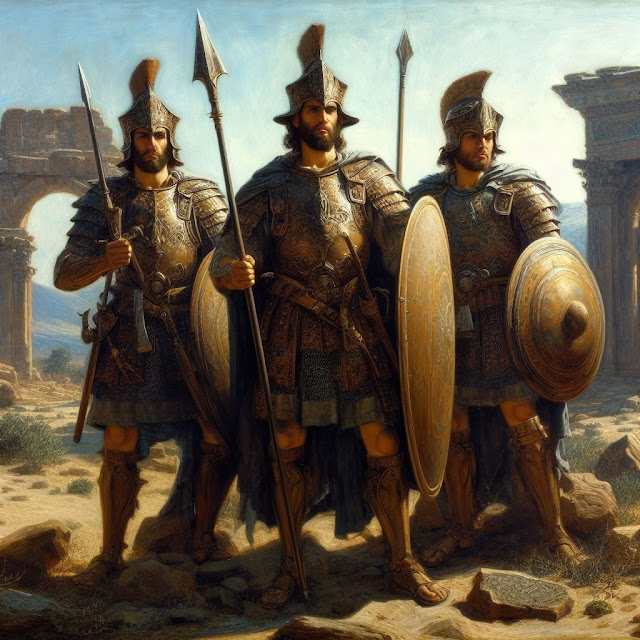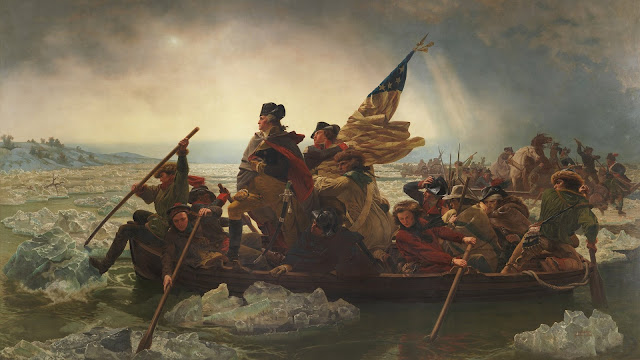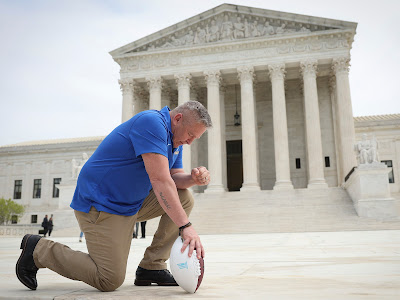"So much the better," replied Leonidas, "for we shall fight them in the shade." Leonidas made his stand, and died with his 300 troops."
-Today in the Word, November 4, 1993.
Starting in verse 8 of second Samuel 23 it says this, “These are the names of David’s mighty warriors: Josheb-Basshebeth, a Tahkemonite, was chief of the Three; he raised his spear against eight hundred men, whom he killed in one encounter.”
One thing to notice here is that David had an inner circle of three, they were called “the three.” Jesus also had an inner circle. He had his 12 disciples, but he also had the three, Peter, James and John.
First point today, have people in your life you can confide in. Who is your inner circle? Who are your closest friends? We all need an inner circle, people we trust and can rely on.
Josheb was a great warrior, one of the three. Fought bravely in battle.
Next we hear of Eleazar, in verses 9-10, “Next to him was Eleazar son of Dodai the Ahohite. As one of the three mighty warriors, he was with David when they taunted the Philistines gathered at Pas Dammim for battle. Then the Israelites retreated, but Eleazar stood his ground and struck down the Philistines till his hand grew tired and froze to the sword. The Lord brought about a great victory that day. The troops returned to Eleazar, but only to strip the dead.”
One man stayed behind as Irsael retreated from the battle, Eleazar, and he fought until his hand grew so tired that it “froze to the sword” we understand that to mean he fought so long that his muscles cramped up.
Here we find our second point for today, never give up. Be bold, turn and fight, and never give up. Fight and fight and fight, even when you can’t fight any longer. Fight until your muscles ache, be persistent. Don’t give up.
Next in verses 11-12, “Next to him was Shammah son of Agee the Hararite. When the Philistines banded together at a place where there was a field full of lentils, Israel’s troops fled from them. But Shammah took his stand in the middle of the field. He defended it and struck the Philistines down, and the Lord brought about a great victory.”
So we’ve now seen the heroes of the three, Jashib, Eleazar and Shammah. What was distinctive about the three? When no one else was around, it was just one guy, they fought and didn’t give up.
One against many.
What’s the distinguishing factor? Bravery.
Point three today, bravery is a hallmark of a Christian. A true follower of Jesus is brave and bold. They know God is with them.
Notice for Shammah, it’s stated clearly, the Lord brought about a great victory. It wasn’t Shammah. Shammah was brave and held true.
What is bravery? You feel the fear and do it anyway. You push through in faith. Faith overcomes any fear. You feel it, you do it anyway. God grants the victory.
Next in verses 13-17 we see a defining event of the three, Josheb, Eleazar and Shammah.
It says, “During harvest time, three of the thirty chief warriors came down to David at the cave of Adullam, while a band of Philistines was encamped in the Valley of Rephaim. At that time David was in the stronghold, and the Philistine garrison was at Bethlehem. David longed for water and said, “Oh, that someone would get me a drink of water from the well near the gate of Bethlehem!” So the three mighty warriors broke through the Philistine lines, drew water from the well near the gate of Bethlehem and carried it back to David. But he refused to drink it; instead, he poured it out before the Lord. “Far be it from me, Lord, to do this!” he said. “Is it not the blood of men who went at the risk of their lives?” And David would not drink it.” Such were the exploits of the three mighty warriors."
This was long ago, when David was hiding in a cave from King Saul. This was long before David became king.
The three love David so much, when he says he wishes for a drink from his well in Bethlehem, where he grew up, they sneak out and risk danger and death, they gather water from the well and bring it back to David.
What does David do? He’s so concerned that his men risked their lives in this way, he poured out the water before the Lord.
By David doing this, he was saying, your lives are more important than a simple drink of water. So he poured it out as an offering of humility before God.
Imagine if David had drank the water they brought him. It could’ve easily meant to his men, that it was good what they did, that they should do it again. So he poured it out. It also protected David from pride, kept him humble.
Next we see a fourth member of the 3. But I thought there were only three of the three?
Well, that’s true. But, there was another great warrior, Abishai, and he was such a great warrior, that he kind of forced his way into the three, and even became leader of the three. You could say that Abishai was the one. Jesus had a one as well, Peter. But he also had three. Peter, james and John.
It says this about Abishai, “Abishai the brother of Joab son of Zeruiah was chief of the Three. He raised his spear against three hundred men, whom he killed, and so he became as famous as the Three. Was he not held in greater honor than the Three? He became their commander, even though he was not included among them.”
One thing that David knew he needed to do was surround himself with the right people. David was a leader. He was a soldier. And in his brigade of troops, he gathered some of the greatest warriors in all human history.
They were drawn to David you see. He didn’t necessarily seek them out, but they were drawn to him. They knew, this man is a leader and we’re going to follow him. Similarly each of us have been drawn to Jesus Christ our leader, and we as Christians are part of his brigade, his mighty men.
Then we hear of another great warrior, Benaiah. He was part of the thirty. So David had the three chief warriors, but then he also had another group of thirty men. A second group, larger than the others. Again this is similar to Jesus. Jesus had the three, the twelve, but he also had the seventy two. The seventy two were a larger group that followed him as well, and served in various ways. Jesus sent out the seventy two, two by two town to town to spread the good news.
So here we see probably the leader of the thirty, it says this about him: (verses 20-23)
"Benaiah son of Jehoiada, a valiant fighter from Kabzeel, performed great exploits. He struck down Moab’s two mightiest warriors. He also went down into a pit on a snowy day and killed a lion. And he struck down a huge Egyptian. Although the Egyptian had a spear in his hand, Benaiah went against him with a club. He snatched the spear from the Egyptian’s hand and killed him with his own spear. Such were the exploits of Benaiah son of Jehoiada; he too was as famous as the three mighty warriors. He was held in greater honor than any of the Thirty, but he was not included among the Three. And David put him in charge of his bodyguard.”
Benaiah was an underdog, taking on warriors bigger than him. A lion, bigger than him. Two giant Egyptians. Benaiah would find himself at a disadvantage, and would turn it into a victory.
Point five, embrace the underdog role. In life we will often find ourselves at a disadvantage. Can we use God’s wisdom to turn it into an advantage? If we take what we’ve learned about God in the Bible, we can turn a bad situation good. We can go from losing to winning. We can find victory from the ashes of defeat. Do you believe that today? If so, say amen.
When you’re the underdog, turn your disadvantages into advantages by God’s wisdom
Lastly, we see the names of the thirty, the larger group of David’s warriors:
It says, “Among the Thirty were: Asahel the brother of Joab
Elhanan son of Dodo from Bethlehem,
Shammah the Harodite, Elika the Harodite, Helez the Paltite,
Ira son of Ikkesh from Tekoa, Abiezer from Anathoth,
Sibbekai the Hushathite, Zalmon the Ahohite,
Maharai the Netophathite, Heled son of Baanah the Netophathite,
Ithai son of Ribai from Gibeah in Benjamin,
Benaiah the Pirathonite, Hiddai from the ravines of Gaash,
Abi-Albon the Arbathite, Azmaveth the Barhumite,
Eliahba the Shaalbonite, the sons of Jashen,
Jonathan son of Shammah the Hararite,
Ahiam son of Sharar the Hararite,
Eliphelet son of Ahasbai the Maakathite,
Eliam son of Ahithophel the Gilonite, Hezro the Carmelite,
Paarai the Arbite, Igal son of Nathan from Zobah,
the son of Hagri, Zelek the Ammonite,
Naharai the Beerothite, the armor-bearer of Joab son of Zeruiah,
Ira the Ithrite, Gareb the Ithrite and Uriah the Hittite.
There were thirty-seven in all.”
It says there were thirty seven in all, not just thirty. But they were considered the 30.
Now, if you make sure you’re an on fire Christian, serving faithfully in this church, you may just be lucky enough one day to make the list of Justin’s mighty men and women.
But ultimately, we want to be found on God’s list of mighty men and women. We want to make sure our names are written in the Lamb’s book of life. We want to the friends of Jesus. His followers. Those who do mighty deeds in his name.
I’ve often joked that this little church here in Owosso, is my band of mighty men and women. Robin Hood and his merry men and women. Out in the wilderness of Owosso, fighting the good fight of the faith. Hit and run attacks on the enemy. Prayer warriors in the wilderness. The battle rages on. We’re not a massive mega church that can launch massive battle fronts attacks on the enemy, but we’re a small band of warriors who can sneak attack on the enemy’s supply lines and disrupt the enemy’s forces.
That’s our battle. Let’s fight it faithfully. Join up with the Owosso Citadel mighty men and women, and we’ll spread the gospel, meet needs, and strike down Satan’s forces in Shiawassee county.
Applications for Life:
1. Have close confidantes you can confide in
2. Don’t Give up when it gets hard
3. Bravery is feeling the fear and doing it anyway
4. Pour out the water of pride and embrace humility before God
5. Turn your disadvantages into advantages with God’s wisdom
6. Be found on God’s list of mighty warriors: Embrace Jesus as Lord
7. Serve in the local band of believers: Serve in the local church

















